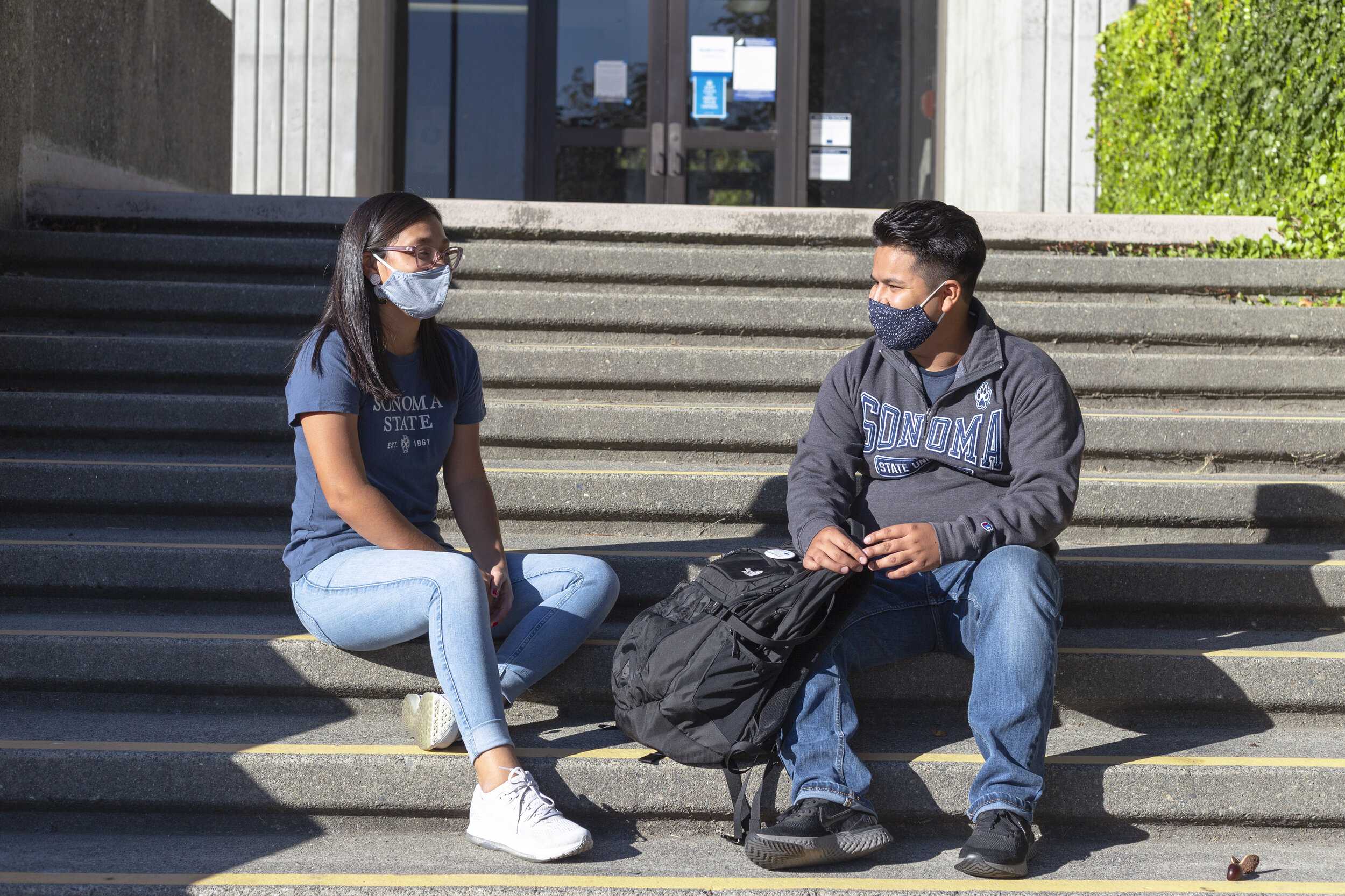At Sonoma State University students, a total of 93 COVID-19 cases have been reported, 86 of which were reported off campus and 7 of them on campus. Whether they’re living on or off campus, SSU students continue to balance remote learning with the existing threat of COVID exposure and the state of their mental and physical health.
While SSU has taken multiple safety measures with the purpose of minimizing the spread of COVID-19 on campus, such as requiring students to live in singles, this doesn’t completely eliminate the potential threat of the virus.
After speaking with students who chose to live on campus, it became clear that some students continue to congregate, potentially exposing others to the virus. For many students with roommates, an added stress factor is not knowing whether those they live with are gathering in large groups or not.
A female biology major at SSU that wished to remain anonymous said, “My roommate had texted me saying she was feeling ill and that it would be a good idea for me to get tested.” Later that week the student received confirmation of a positive COVID-19 test result. She was sad but not surprised by the outcome.
The bio major said, “I felt a little scared because I honestly didn’t know how the virus would specifically affect me given my medical history and all I could think of is how the news advertises covid patients.”
The student explained how she has a heart condition called long QT syndrome which, according to Mayo Clinic, is, “a heart rhythm condition that can potentially cause fast, chaotic heartbeats. These rapid heartbeats might trigger you to suddenly faint. Some people with the condition have seizures. In some severe cases, LQTS can cause sudden death.”
While the anonymous student feels confident that she wasn’t having any contact with anyone other than her housemates, she felt frustrated that she couldn’t control the decisions her housemate made.
“I felt like it was very irresponsible of her and she gave me no context to the situation so I felt confused and alarmed all at the same time. I also wish she would have broken the news to me in a more sincere way rather than just saying ‘go get tested…it is what it is,” she said.
Another student, a male English major living on campus, shared his experience after he came into contact with someone who had COVID-19, explaining what measures the school took to address the situation.
He mentioned that the school immediately contacted him in order to isolate and remove him from his dorm to avoid the risk of infecting others.
He said, “What they did was they scheduled a COVID test for me and had someone from REACH [Residential Education and Campus Housing] contact me. They gave me like 20 minutes to move my stuff from my dorm into Sauv [a dorm building for freshman housing]. It sucked because I don’t have a car at the moment so I was basically sprinting back and forth from my dorm to Sauv with COVID because I did test positive… I know it had to be done so no one could get infected which is good.”
The student also shared that at the time when he was told to isolate, he only had enough food to last him four to five days, meaning he had to ration it to last 11 days.
COVID-19 not only affects students’ learning, but also their ability to focus on academics and their mental health. While students continue to make efforts to minimize the amount of contact they have with others, the most effective precautionary measure proven to work is isolation.
Several publications have explored the impact of the COVID-19 pandemic on college student’s mental health. As part of an ongoing series by PBS NewsHour, “Rethinking College,” Hari Sreenivasan reports that “College students have long been prone to stress, anxiety and depression. And three out of four Americans between the ages of 18 and 24 report poor mental health tied to the pandemic, according to the CDC.”
Students take on this semester with an added stress, compared to past years because of the pandemic. Whether they contract the virus or not, poor physical and mental health has increased among college students during the past year.





![[Both photos courtesy of sonoma.edu]
Ming-Ting Mike Lee stepped in as the new SSU president following Sakakis resignation in July 2022](https://sonomastatestar.com/wp-content/uploads/2024/04/CC4520AB-22A7-41B2-9F6F-2A2D5F76A28C-1200x1200.jpeg)


























